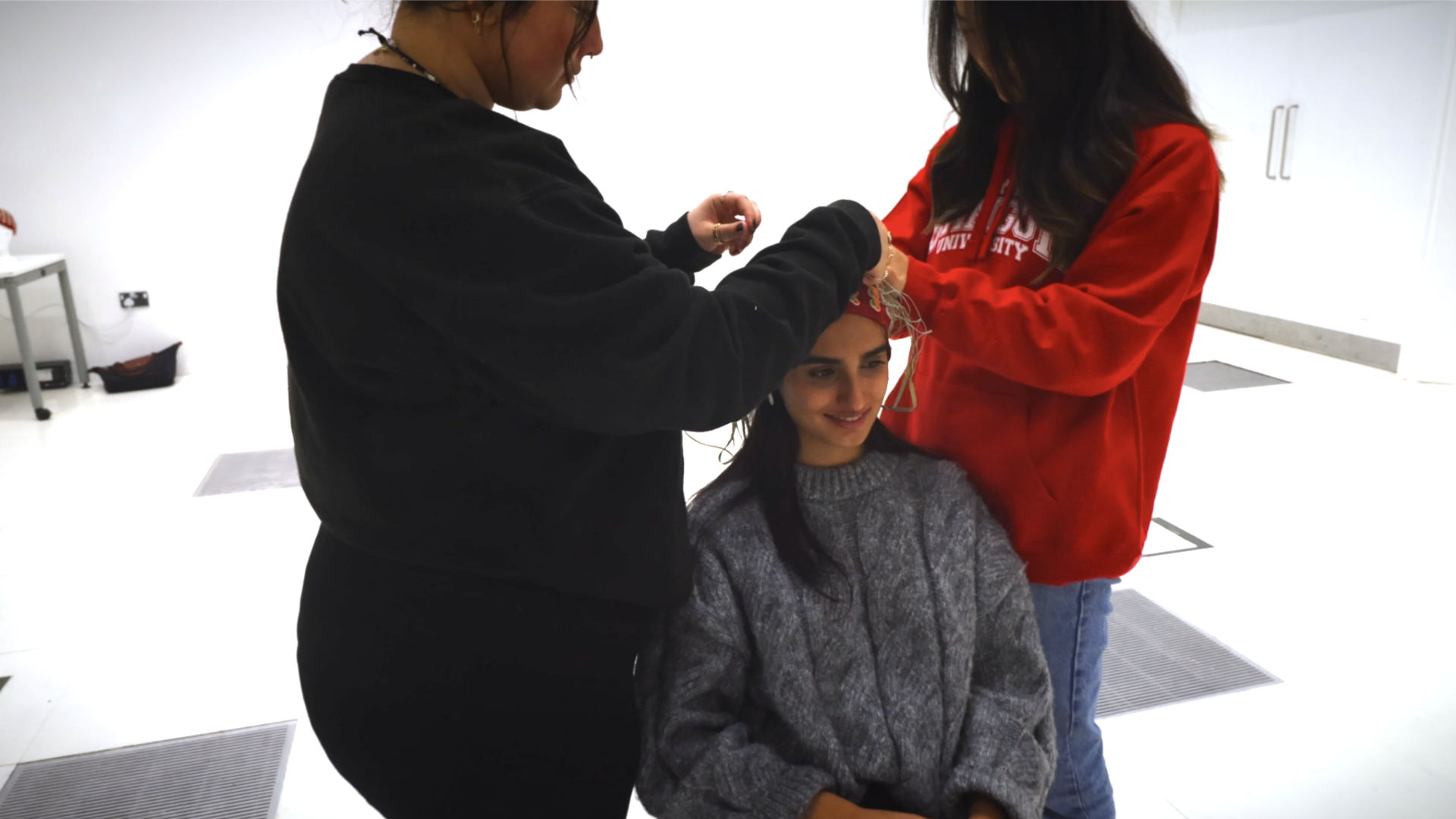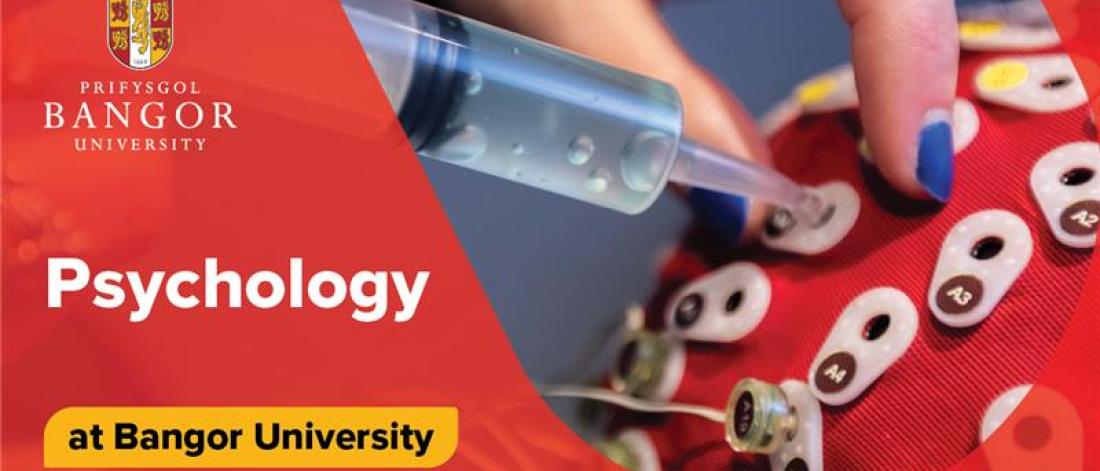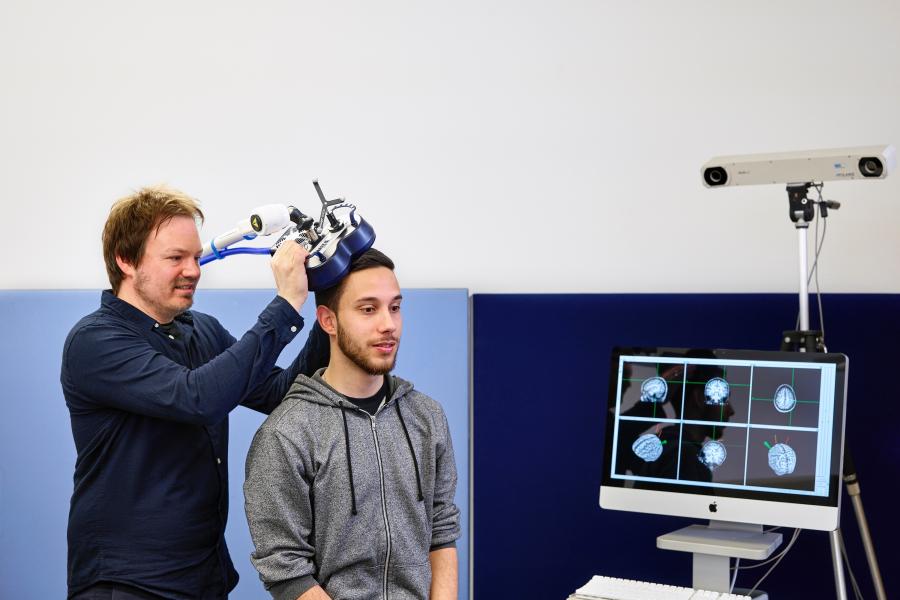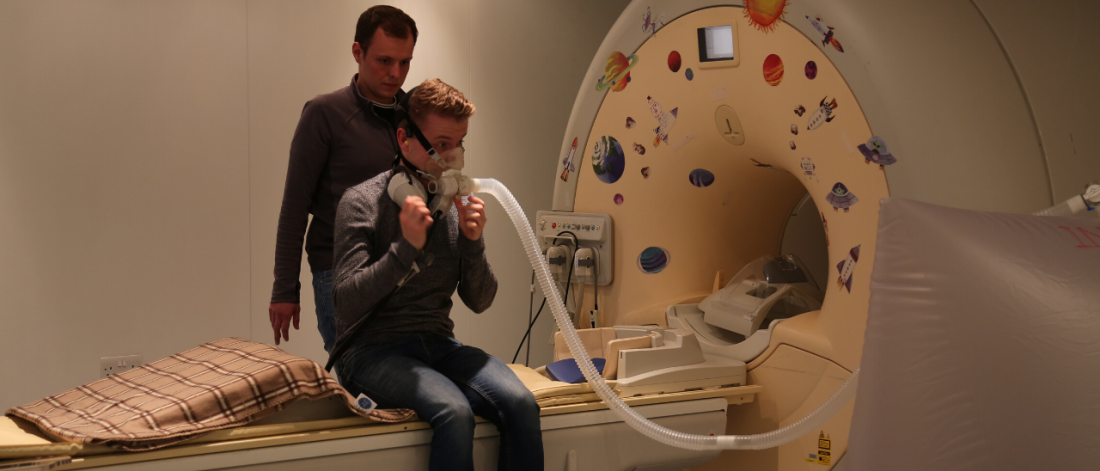Watch - Psychology at Bangor
[Voiceover] Why do we need psychology?
Well, psychology is everywhere. We use psychology in every aspect of our day to day life, from perceiving
and understanding the world around us, to processing and exchanging language and communication with others, and to thinking about our own behaviour and that of other people.
So one thing that characterises Bangor is that staff are very approachable.
Students are given the care and the attention that you would not expect from pretty much
any other place in the UK.
As an international student, Bangor genuinely feels like a second home.
You always know there is someone to talk to about your academic or personal concern.
The research and the neuroscience heavy modules, particularly the developmental
and brain degeneration modules, have really accelerated my desire to follow a career in research.
Each of our undergraduate pathways are BPS accredited. One of the beauties
of having the same curriculum for year one and two in each of our pathways is that you can actually choose to change
pathway partway through your course.
In my first year module, Brain and Mind, I got to work on a real human brain.
Seeing it in real life made what we were learning feel so much more real.
One of the things we do here at Bangor particularly, is we try and build your confidence, and we do that through our oral presentation training package.
I'm actually not a great public speaker. However, I did manage to stand up in a lecture theatre full of first year students
as a course representative, and that is purely down to the progress made through POPPS.
Graduating from a BPS accredited degree enables you to register for one of the professional psychology professions,
such as educational psychology, clinical psychology, occupational psychology and health psychology.
But actually, graduates of psychology can go on to a range of different professions where we use our skills and understanding
of people and human nature in professions such as marketing, healthcare, education, data analysis, and so on.
During your time with us at Bangor, we give you an opportunity to undertake work experience
or a placement as either a two week placement opportunity during your summer between year two and year three of your degree, or as a full year placement that you can take during that time.
On my placement year, I worked as a learning support assistant in a secondary school. I worked closely with pupils dealing with
emotional and mental health challenges. It really opened my eyes and showed me that I want to make a difference.
That hands on experience is something I will take with me into my future career.
Clearly, the world today is facing unprecedented challenges. Psychologists are the ones that can help
and can find pathways to solutions through research, but also through counselling and seeing situations and how to solve them.
This is the job of psychologists. They are a huge source of hope. And of course you need good psychologists.
And that's what we produce in Bangor.
So come to us.
We'll teach you how to be good psychologists for the world and you'll really enjoy the trip.
British Psychological Society (BPS) accredited degrees
Your path to becoming a professional psychologist starts with the right foundation. You'll need graduate membership of the British Psychological Society, and your degree needs BPS accreditation to get there.
Every single honours Psychology degree at Bangor carries this essential accreditation. We're ensuring you study all the content necessary for graduate membership, setting you up for professional success from day one.
BPS accreditation guarantees exceptional teaching standards and ensures our assessment practices are fair, transparent, and inclusive for every student. We maintain optimal staff-to-student ratios, giving you direct access to high-quality, research-active lecturing staff who are experts in their fields.
Your BPS-accredited degree covers all core psychology areas whilst developing essential subject-specific skills through our comprehensive core and optional modules. You'll conduct empirical studies, collecting and evaluating your own data alongside the active research happening in our School - turning you into a skilled researcher ready for your professional journey.
Each of the following are covered by our curricula to ensure graduate basis for chartered membership:
- Biological Psychology – the neuropsychological and biological basis of brain function and behaviour.
- Cognitive Psychology – the study of how we think, learn, communicate with one another and so on.
- Developmental Psychology – typical and atypical development across the lifespan from infancy to old age.
- Individual differences – a broad topic covering how and why we differ from one another in terms of intelligence, personality, emotion and mental health.
- Social Psychology – all aspects of human interaction from group dynamics to leadership styles and how and why humans might conform to authority.
- Conceptual and Historical issues in Psychology – the study of psychology as a science, including historical paradigms and methodologies and a discussion of the political and ethical issues within psychology.
- Research methods – skills in data collection and analysis allowing application of multiple perspectives to questions within psychology
- Empirical project – a substantial piece of research involving the collection and analysis of original data.
What will you study?
Our students talk about the modules they chose and facilities they use whilst studying Psychology with us in one of the UK's leading Psychology departments.
Bangor University Psychology Virtual Tour
Brigantia Building
The Brigantia Building on College Road houses academic and administrative offices for Psychology.
Psychology undergraduates will visit Brigantia when they need to meet with personal tutors and project supervisors, as well as when they tend to various administrative aspects of student life.
Bangor Imaging Unit
The Department of Psychology has its own research dedicated MRI/fMRI facility in the Brigantia building. Facilities within the Bangor Imaging Unit include a research and teaching dedicated 3 Tesla Magnetic Resonance Imaging scanner, MRI compatible EEG, transcranial magnetic stimulation (TMS), stimulus presentation systems, and eye tracking systems. In addition to anatomical and functional MRI, the scanner is equipped for 4D cardiac, diffusion tensor imaging (DTI) and magnetic resonance spectroscopy (MRS).
Miles Dyslexia Centre
The Miles Dyslexia Centre provides language and literacy teaching support and assessment for children and adults. The Centre also conducts research into the neurocognitive and behavioural basis of reading and writing. The Miles Dyslexia Centre comprises of a team of researchers and educational practitioners, developing best-practice teaching and assessment methods, combined with cutting-edge scientific research.
Lloyd Building
The Lloyd Building on College Road houses a number of different research labs used by students and researchers within the Department of Psychology at Bangor University.
Eye-Tracking Lab
The Department of Psychology has open-access eye-tracking facilities in the Lloyd building. Facilities within the Open Access Eye-Tracking lab include a remote eye-tracker Eyelink 1000 plus, HD LCD monitors, Ultravoice Dynamic Cardioid Vocal Microphone, audio mixer, and over ear headphones.
Eye trackers work by using infrared light to track the position of the eyes. In this lab, a chin rest is also available to help stabilise the participant’s head and to ensure that their eyes are at the correct distance from the eye tracker.
Psychology Open-access Electrophysiology and Topographic (POET) Lab
The Department of Psychology has open-access electrophysiology and topographic facilities in the Lloyd building. Facilities within the Psychology Open-access Electrophysiology and Topographic (POET) Lab include ActiveTwo multi-channel high resolution biopotential measurement system from BioSemi, pin-type active electrodes, EEG headcaps. The lab also includes a remote eye-tracker Eyelink 1000 plus for EEG measurements with simultaneous eye tracking.
In the POET lab, participants are tested inside an electrically shielded Faraday cage with acoustic dampening. Faraday cages are used to enhance the quality of the EEG data by blocking electromagnetic signal interference from the measurement room.
In this lab, there are also cameras and an intercom system available for researchers to regularly check on the participants during the testing session. This ensures that the participants don’t feel too isolated from the outside world whilst inside the testing room.
In the control room, there are three desktop computers dedicated to data analysis.
Motion Capture Lab
The Department of Psychology has a 3-D vision and hand function laboratory that contains a Qualisys Miqus motion capture system for precise measurement of hand movements, as well as various bespoke pieces of equipment, including visual displays for presenting virtual 3-D visual stimuli, and tools and simulated prostheses for studying use of mechanical devices
Wheldon Building
The lounge area in the Wheldon Building is equipped with a printer, a vending machine, and comfortable seating options, where students can sit and chat with their peers before their classes, or study in a relaxed atmosphere.
Computer Lab
The Wheldon Building’s computer lab is a versatile facility equipped with 80 computers. This lab supports a range of practical sessions, such as statistics and academic writing.
Pontio
Pontio is Bangor University’s arts and innovation centre. Some of the modules offered by the Department of Psychology are delivered in Pontio Level 5, a large lecture theatre that can seat up to 450 students.
MRI Simulator
When using the MRI scanner to take images of the brain, it is of vital importance that participants keep their head (and body) as still as possible. The Brigantia building houses a state-of-the-art mock scanner that is equipped with a sound system to play scanner sounds, and MoTrak, a software which allows fine-grained head motion tracking. The mock scanner is designed to familiarise participants, particularly children, with being in the scanner environment.
Multiple-Focal-Planes Stereoscopic Display Lab
This lab contains a unique prototype stereoscopic 3-D display designed to investigate how we see in 3-D and in particular to explore solutions to various problems experienced when using media such as VR systems, 3-D movies etc. As well as perceptual measures of depth perception, the system can measure where the eyes are looking, and the distance at which eye’s lens is focused. The experiments require that only the experimental stimuli are visible, and so the room is blacked out when in use.
Bangor University Language Electrophysiology Team Lab
The Brigantia building houses a state-of-the-art EEG lab that features two testing booths, including BioSemi systems for high-resolution biopotential measurement, and CRT monitors for displaying visual stimuli during testing sessions. The lab is also equipped with several EEG caps. The testing booths are designed to provide a quiet and controlled environment for data collection. Researchers can also monitor participants during testing sessions using cameras and an intercom system to ensure their safety and comfort.
Do you have a question about life as a Bangor University student? Our ambassadors will be happy to help you find the answer.
They can tell you more about studying here, about the amazing Clubs and Societies we have, and how they made friends and settled into life at university as a Psychology student.
If you have any questions about the course, our lecturers are on hand to help. Below are some examples of frequently asked questions. Can you think of any more?
- What are the qualities of a successful Psychology student at Bangor?
- How can I prepare myself to study Psychology at Bangor?
- How will I know that Psychology at Bangor is the right choice for me?
Our research in Psychology
Research in Psychology at Bangor University reflects two key approaches. First is the development and study of interventions to promote well-being, from early childhood to older age. Intervention was at the heart of the School’s agenda at its inception more than 50 years ago, and remains central to our research identity today.
Our second key approach is cognitive neuroscience, where we have invested heavily in staff and specialised research facilities, to investigate perception and action; language and development; and social cognition.
You may also be interested in these related subject areas.
You may also be interested in these related subject areas.














